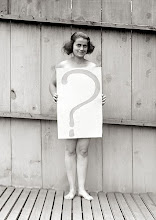From The Best American Short Stories 2005:
"Wind was pouring into the car, and the sirens were growing louder, an army of them, and Gwen's face was an inch from yours, her hair falling from behind her ear and whipping across her mouth, and she was looking at you, she was seeing you--really
seeing you. Nobody'd ever done that before, nobody. She was tuned to you like a radio tower out on the edge of the unbroken fields of wheat, blinking red under a dark-blue sky, and that that night breeze lifting your bangs was her, for Christ's sake, her, and she was laughing, her hair in her teeth, laughing because the old lady had fallen out of the bed..." - Dennis Lehane, "Until Gwen"
"She had been sitting for hours here on the outskirts of a Kansas mining town, waiting for dark, so she could find a bar and a man to buy her drinks. She was in a foul mood lately, as her plans for a life of riotous adventure had thus far come to nothing. She'd fled a teenage marriage in Canada after seeing a Wild West show, complete with save Indians and lady sharpshooters, and come west to seek her fortune among such fierce creatures. Her career as an outlaw was not going well. The problem was men. The problem was
always men." - Tim Pratt, "Hart and Boot"
"Raccoon, an only child like me, had nothing. The Kletz brothers called her Raccoon for the bags she had under her eyes from never sleeping. Her parents fought nonstop. They fought over breakfast. They fought in the yard in their underwear. At dusk they stood on their porch whacking each other with lengths of weather stripping. Raccoon practically had spinal curvature from spending so much time slumped over in misery. When the Kletz brothers called her Raccoon, she indulged them by rubbing her hands together ferally. The nickname was the most attention she'd ever had." - George Saunders, "Bohemians"

